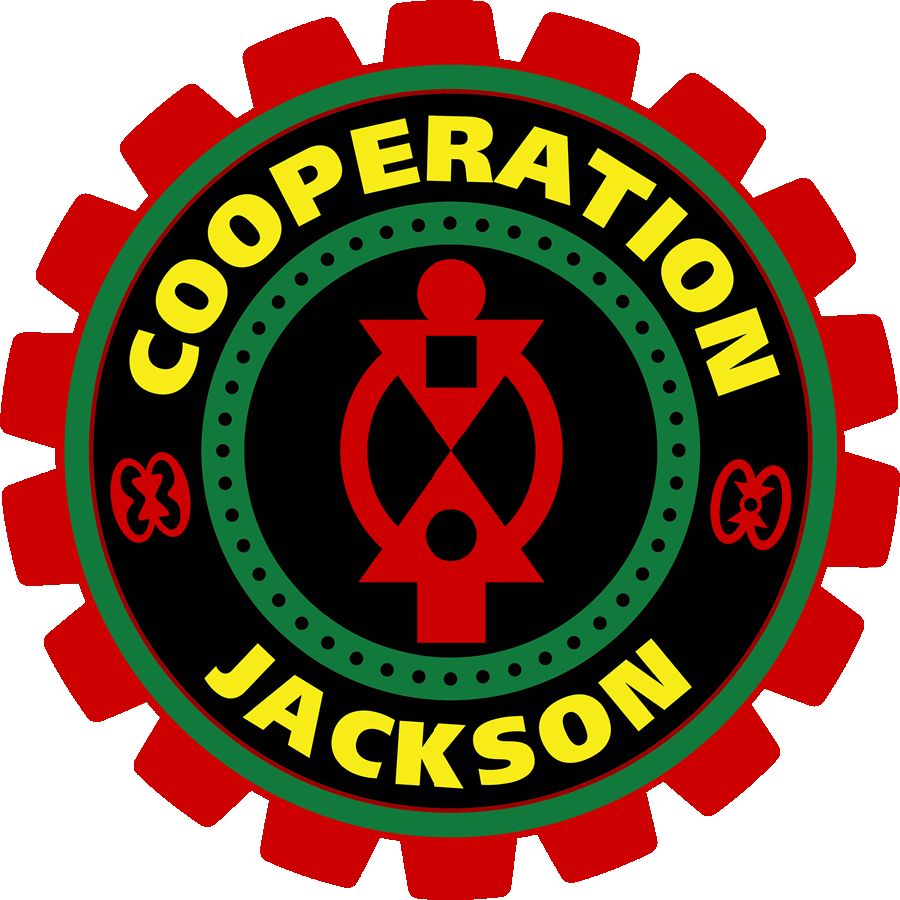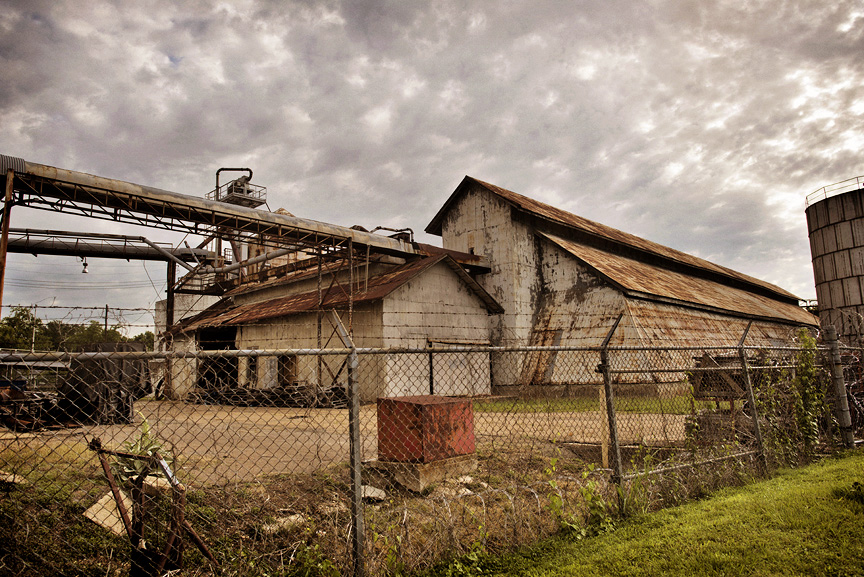Overview: Why Cooperatives? Why Jackson, Mississippi?
Unemployment is rife in Jackson and can be seen all around. Here is one example of a shuttered, decaying factory in what was once a thriving industrial area near the corner of Mill and Fortification Streets.
Cooperative businesses are unique from other types of commercial enterprises in that they exist to meet the needs of people, not to maximize profits. They often form to address the unmet needs of working people - be they producers, workers, consumers, or purchasers – and to provide them with the goods, services, cultural engagement, democratic rights, and political autonomy needed to live fully empowered lives.
Cooperatives put capital (wealth) in the service of working people, rather than making working people subservient to capital. They do this in part by:
Democratizing the processes of production, distribution and consumption
Equitably distributing the surpluses produced or exchanged
Creating economies of scale
Increasing bargaining power
Sharing costs for new technology
Gaining access to new markets
Reducing individual market risks
Creating and obtaining new services
Purchasing in bulk to achieve lower prices
Providing credit under reasonable terms
Another sign of the brutal, grinding poverty in Jackson, Mississippi.
The working peoples of Jackson, and Mississippi in general, are beset by numerous unmet economic and social needs. They lack jobs, living wages, workers rights and access to affordable high quality foods, health care, and housing to name but a few critical unmet needs.
Mississippi is the poorest state in the union of the United States. In 2013 it possessed a median household income of $37,095. The City of Jackson is one of the poorest metropolitan cities in the United States, with a median household income of $33,434 and a poverty rate of 28.3% between 2008 and 2012. Jackson’s “official” unemployment rate stood at 8.0% as of August 2013 according to the US Department of Labor’s Bureau of Labor Statistics. However, its “real” unemployment rate however, is estimated to be above 25%.
Beneath its chronic unemployment and impoverishment, Jackson, like many urban centers, is struggling to overcome decades of economic divestment, deindustrialization, and suburban flight fostered by structural racism and major shifts in United States and global economy following World War II. These economic and demographic shifts have left Jackson with a declining tax base, chronic under and un-employment, poorly performing schools, and an antiquated and decaying infrastructure.
The question arises, how can we address these systemic and structural problems? How can we take proactive, self-determined action to meet our needs and improve the lives of Jacksonians? Cooperation Jackson believes that a long-term strategy of coordinated social action led by working people to create economic democracy and a solidarity economy via the development of cooperative enterprises specializing in sustainable means of production and distribution is a central part of the solution.
The multinational corporations that dominate the regional, national, and international economy are only interested in short-term gains and maximizing profits, not in producing quality high paying jobs for working people. If we are going to secure the jobs and resources needed to live with the full complement of our human rights, we believe we must do two things: 1) create cooperative economic enterprises and institutions that serve our own needs and interests and 2) create and/or support social movements struggling for economic justice and democracy against the narrow interests of multinational corporations and the increasingly ineffective and unsustainable policies of the national governments that define our modern world.
Our ability to address both needs is very real and practical in Jackson, Mississippi. This is why we are building Cooperation Jackson.




